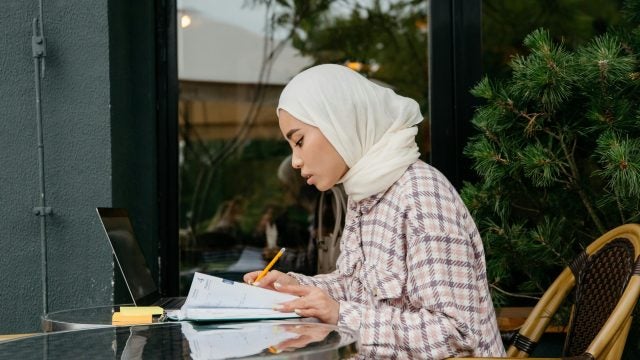Title: The COVID-19 Pandemic’s Effects on United Nations Peacekeeping
The COVID-19 pandemic has presented new challenges for United Nations Peacekeeping Operations, but also provides the opportunity to redefine the typically-masculinized idea of peacekeeping. The pandemic has highlighted the importance of gendered community engagement to ensure access to healthcare and humanitarian services. This should serve as another impetus to increase the number of women in peacekeeping.
COVID-19 has taken over one million lives, will likely cost the global economy trillions of dollars, and has created uncertainty and chaos. As a result, more is being asked of the United Nations Peacekeeping Operations (PKOs) currently operating in thirteen active conflict zones. The pandemic strains resources, heightens tensions, and has increased gender based violence around the world. Since women are currently at a heightened risk of abuse, the role of UN peacekeeping in mitigating harm is paramount. To address new challenges, peacekeeping missions must institute an inclusive and bottom-up approach that goes beyond masculinized perceptions of peace and conflict. Striving for a more holistic approach to peace is another reason why this pandemic presents a key moment to push for greater participation of women and an equal opportunity approach in peacekeeping operations.
The current economic crisis caused by COVID-19 puts potential funding for Women, Peace and Security (WPS) initiatives in jeopardy. Even before the pandemic, bilateral commitment to supporting gender equality and women’s rights in conflict-affected countries decreased from 5.3 percent in 2011-2012 to 4.5 percent in 2017-2018, and bilateral aid to women’s organizations stagnated at 0.2 percent of total bilateral aid since 2011. New funding opportunities put forth by the United Nations during COVID-19 must be fully carried out; currently less than ten percent of the funding for gender-based violence provided under the Global Humanitarian Response Plan for COVID-19 has been received.
COVID-19 Impacts on Peacekeeping So Far
Managing the numerous implications of the COVID-19 pandemic has strained missions’ resources. From introducing widespread testing to providing personal protection equipment (PPE), dealing with a pandemic imposes costs. In addition to their regular daily activities and operations ranging from freeing abductees to monitoring elections, peacekeepers started conducting public education campaigns about the virus, instituting new health and safety protocols, and supporting local governments’ responses.
The pandemic has also put new burdens on mission personnel. In April, the Department of Peace Operations (DPO) suspended all rotations, repatriations, and new deployments until June 30, 2020. While rotations have since resumed, for two months this meant peacekeepers, who in some cases had already served the full duration of their deployment, needed to take on further pandemic-related tasks without new personnel coming in. This exposed them to additional risks. In a statement during a meeting of troop contributing countries (TCCs) during the General Assembly in September, Ambassador Rabab Fatima, Permanent Representative of Bangladesh, pointed out that these troops are susceptible to COVID-19 and must be provided with adequate PPE, medical care, and testing. Ambassador Fatima noted that TCCs had reached out to the DPO to register concern for their troops’ safety.
The vulnerability of UN personnel is illustrated by the death of Salvadoran pilot Carlos Moisés Guillén Alfaro, who had been stationed in Mali. His family raised concerns about alleged social distancing violations at UN facilities, late testing for the virus after he fell ill, and the quality of his medical treatment. As the pandemic continues, DPO will have to ensure the protection of UN personnel so that they can in turn protect host communities.
Identifying, isolating, and caring for infected peacekeepers is crucial to protect missions’ standing among host communities. The Central African Republic’s first COVID-19 case came from an Italian missionary, resulting in widespread xenophobia that threatened to impede peacekeeping operations. Some have directed hostility at the UN peacekeepers stationed in the area, and have used the term “the Minuscavirus” to refer to the UN mission’s acronym MINUSCA.
In the Central African Republic, peacekeepers already suffering from low public trust because of peacekeeper-perpetrated sexual abuse also faced skepticism surrounding the potential spread of coronavirus, further challenging their ability to carry out their duties. Any transmission from UN peacekeepers to local beneficiaries would undoubtedly undermine trust in the mission and damage relations. Considering its role in the 2010 cholera outbreak that ravaged Haiti following an earthquake, the United Nations is determined to prevent spreading COVID-19. Continuing in-person activities will take more engagement with the host communities in a safe and respectful manner. Women peacekeepers are critical to this undertaking, as studies have shown that they are seen by locals as more trustworthy.
More generally, this crisis serves as a reminder that peacekeeping encompasses a multitude of mission tasks which would benefit from greater inclusion of women. This moment is therefore an opportunity to increase women’s role in peacekeeping. Currently, women only make up six percent of uniformed military and police forces deployed in peacekeeping missions though numerous studies show their positive impact on mission outcomes and community relations.
An ongoing research project at the Georgetown Institute for Women, Peace and Security and supported by the Elsie Initiative for Women in Peace Operations focuses on women’s impact on operational effectiveness in peacekeeping. In interviews, members of peacekeeping operations in the Democratic Republic of the Congo and Cyprus have highlighted that women’s perspectives are crucial for success because diversity—particularly in leadership positions—improves decision-making. In the Democratic Republic of the Congo, leadership of the peacekeeping mission emphasized the importance of Female-Engagement-Teams in the mission’s efforts to prevent the spread of COVID-19 by facilitating communication with all members of local communities. Gender advisors highlighted that local women reportedly feel safer confiding in a woman peacekeeper about matters of their safety.
This reporting has influenced the mapping of security zones that inform where peacekeepers, both male and female, patrol. In Cyprus, members of civil society organizations have lauded the mission’s all-women leadership and their increased community outreach efforts. These cases demonstrate that positive, trust-building interactions between local communities and peacekeepers are critical as peacekeeping missions adjust to the impacts of COVID-19.
Lessons for (Post-)Pandemic Peacekeeping
Peacekeeping is under pressure from COVID-19, a shrinking global economy, smaller budgets, and criticism of alleged ineffectiveness. In the face of these challenges, there is an opportunity for the UN DPO to remodel its approach to peacekeeping. Some have advocated for more flexibility and smaller missions. Beyond these structural changes, the COVID-19 pandemic has highlighted important aspects that need to be addressed as the international community seeks to rebuild in a post-COVID world.
The pandemic has emphasized the importance of less militaristic aspects of peacekeeping, such as providing healthcare and humanitarian services. Now is the time to strengthen capabilities on these fronts and commit to gendered community engagement. Such engagement is explicit about outreach efforts to local men and goes beyond the assumption that only local women need to be ‘engaged’ with, which often creates another burden for women. As the current primary threat cannot be fought with weapons, the pandemic presents a moment to dismantle the “warrior identity.” Instead, peacekeepers should embrace an identity centered around non-combat, humanitarian roles. This ought to go hand in hand with an equal opportunity approach that effectively integrates women into all levels of peacekeeping missions and ensures they meaningfully participate in all activities, instead of confining them to administrative duties on base.
The pandemic highlights a number of important but frequently neglected aspects of peacekeeping in which both men and women peacekeepers can make a difference. It has required strong communication skills, access to all members of a community, and building and maintaining trust with them. These are foundational components for both ongoing and future peacekeeping work.
Attention to local needs and collaboration is more important than ever for peacekeeping to be effective. This involves funding for the empowerment and protection of vulnerable women. Additionally, once a vaccine becomes available, peacekeeping missions will have to play a critical role in facilitating access to and distribution of the vaccine in many of their host countries. This makes peacekeeping missions’ ability to access, listen to, and communicate with all members of local communities crucial. According to the mission leadership in DRC, women’s full, equal, and effective participation is key to progress on this agenda, because it builds trust and better represents the gender makeup of communities they serve.
It is important to note that the instrumentalizing logic that ties women’s participation to improving effectiveness can create an unfair double burden for uniformed women in PKOs. Determined to prove their effectiveness and “value,” members of the all-female Formed Police Unit (FPU) in Liberia, for example, volunteered in communities in their free time where men did not. That is why male peacekeepers’ commitment to dismantling barriers and holding themselves accountable is important to prevent such a double burden on women and move towards a truly equal opportunity approach in PKOs.
This crisis has raised multiple challenges, many beyond the narrow scope of peacekeeping. However, the UN DPO’s handling of COVID-19 and its approach to peacekeeping in a post-COVID-19 world have important implications for the WPS agenda. Within and through its missions, UN DPO can use this moment to help lay the foundations for a more sustainable and equitable future through the inclusion of women and more holistic approaches to peace that extend beyond the absence of violence to encompass a more egalitarian distribution of and access to power and resources.
. . .
Robert Nagel is a postdoctoral fellow at the Georgetown Institute for Women, Peace and Security. His research on gender and conflict is published or forthcoming in the Journal of Conflict Resolution, Journal of Peace Research, Security Studies, and International Studies Quarterly.
Julia Maenza is a research assistant at the Georgetown Institute for Women, Peace and Security. She is also a junior at Georgetown, studying Government and Justice and Peace Studies with a certificate in Arab Studies from the School of Foreign Service.
Recommended Articles

An estimated 7.9 million Venezuelans migrated abroad for the long term under President Nicolás Maduro’s rule as Venezuela’s political, economic, and social crises have deepened. Alongside rising Venezuelan migration, migrants…

Amid stalled U.S. federal climate engagement and intensifying transatlantic climate risks, subnational diplomacy has emerged as a resilient avenue for cooperation. This article proposes a Transatlantic Subnational Resilience Framework (TSRF)…

The 1997 hijab ban in Türkiye left lasting effects on Muslim women’s psychological, social, and religious identities, shaping their experiences across academia, bureaucracy, and politics. Evidence from interviews…